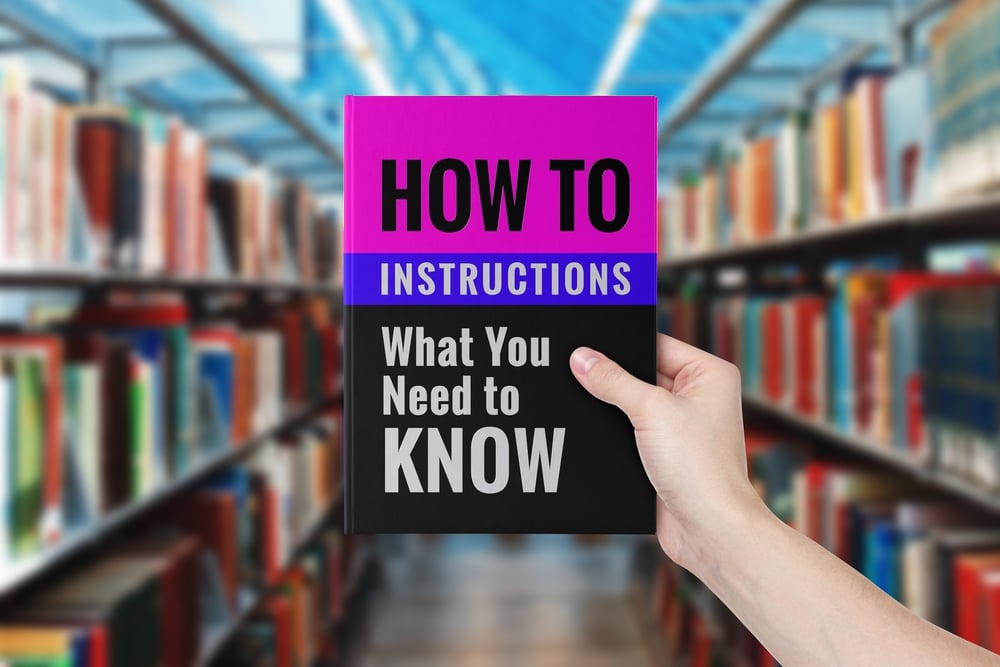Jasmine Birtles
Your money-making expert. Financial journalist, TV and radio personality.


“When life gives you lemons, make lemonade.” This may sound like a tired old cliche but hey – why shouldn’t you turn a negative experience into something positive? Whatever the case may be, your unique set of circumstances might just have the makings of a bestseller – or, at the very least, a blog post that goes viral.
As anyone who’s ever read an inspiring real-life tale will know, there’s power in telling your real life story. In some cases, there’s even money.
While it may not work for everyone, it’s quite possible to use a difficult or unusual life experience to make some well-deserved cash. So, have you got an interesting tale that others might find relatable? If the answer is yes, here are a few ideas…

Almost every newspaper or magazine you pick up will feature at least one real-life story – often tragic, absurd or moving.
Driven by the ‘human interest’ angle, publications are always on the lookout for something either really unusual or highly relatable to draw the eye.
So, if you have an experience that fits the bill, there is every chance you can tell your real-life story in exchange for a few hundred (or sometimes even a few thousand) pounds. Whether your life experience is outrageous, inspiring, tragic, or even comic, it’s likely that you have something unique to offer.
It could be your husband’s affair, bankruptcy, a heart-warming reunion, an illness… or even something less serious, like a dodgy bikini wax. Yes, really!
Before you even think about picking up the phone or drafting an email to sell your story, make sure you are completely comfortable with having your life in the public domain.
Remember your friends, family and random strangers you may still meet are likely to read or hear about your story. So you need to be sure that you can cope with the possibility of negative reactions.
You need to remember that anyone else involved in your story will likely have an opinion on you sharing it, too. It might be a good idea to speak to those you’re likely to mention first. That way, you can discuss any objections that they have before the fact.
Here are a few things to consider:
Once you’ve decided that you’re okay with facing any repercussions, it’s time to decide which publication/s to approach.
Here are some things to consider:
Different magazines obviously have different types of readership, so take some time reading various ones to see where your real-life story might work best.
Pay close attention to the adverts, as the kind of products they feature offer a good idea of who they’re trying to attract. This should give you an idea of the target audience. Will they be interested in your story?
Magazines with a teenage readership may find stories about bullying, family drama and friendship feuds fascinating. Remember, you’ll need to be a similar age or not much older to sell stories to this audience.
Take A Break, Woman’s Own and Chat, on the other hand, often feature sensational stories such as medical horrors or amazing weight loss.
An upmarket glossy like Marie Claire may feature completely different kinds of stories, such as those concerning travel experiences, mental health or careers.
Remember, all these publications have websites too. You might have a better chance of selling your story this way, as print space is always at a premium. Don’t dismiss online-only publications, either.
If your story touches upon contemporary issues and has widespread appeal – perhaps a failed operation or how you had to sell the family home to pay off debts – it may be more appropriate for a newspaper feature article.
Think about the kind of real-life stories you’ve read in the press and have a good look at a variety of newspapers to see which ones are most likely to want a story like yours.
Some national newspapers like The Sun and The Mirror have phone numbers and email addresses specifically for if you want to sell your real life story.
Similarly, magazines like Take A Break have a separate section on their website to help you sell them your story.
If you can’t find a dedicated email address for the paper or magazine you have in mind, simply call the switchboard and ask to be put through to the features desk.
For an alphabetical list of all the newspapers and magazines in the UK along with contact details go to the Media.info website.
Mel Fallowfield, a freelance magazine journalist who publishes people’s true life stories, emphasises how surprising it is that more people don’t contact features teams with their true stories.
“One woman that came to me (through a previous version of this article on MoneyMagpie) earned over £3,000 all together, after being featured in three mags and a newspaper,” says Mel.
As for topics that work well? Mel says the golden rule is: if it’s something your friends are astonished by, other people will want to read about it too. Saucy stories always work well, and so do any incredible transformations – e.g. someone going from being desperately overweight to being a front page model.
“My biggest story this year was actually about a man whose two ex-wives and current wife are all best friends! Another good one is a woman whose husband has run off with her mother,” Mel says.
Mel always sends her version of the story back to the person who told it to her, to be sure they’re completely happy with it before publishing. This is called “read-back”, and you should always ask for it.
“Good, relevant photos are essential to illustrate your story and will earn you more money,” Mel says.
You could also consider using a press agency to sell your real life story for you. They often have the best contacts and, although they take a percentage of your fee, they may end up helping you get more money.
If you think your story will be highly sought-after it may be worthwhile using an agent or public relations company. These agents have the expertise to sell it for the highest price by creating a bidding war. They will also help you organise any legal contracts. They may even be able to help you get paid work on TV documentaries and chat shows.
Three of the main press agencies are National Story and Feature World, but there are plenty of others out there too.
According to one national tabloid feature writer, the amount of money a newspaper will give for a story is unpredictable and prices can vary widely, from £200 to £2,000, or even more for an exceptional story.
As Mel mentioned, one MoneyMagpie reader managed to get £3,000 for selling her story to a few publications.
Once a paper has agreed to buy your story they may ask you to sign an exclusive deal, forbidding you from selling your story to another publication. However, if the story is good enough you may be able to sign a joint contract allowing you to sell your story to both a newspaper and a magazine. This is known as “second rights”.
This is where it can be useful either to work through an agency or to get legal advice.

If you enjoy writing yourself, the best way to tell your story may be to start your very own blog and use it as an online journal of sorts.
While most blogs don’t make that much money, there are ways of earning a small amount through advertising and sponsored content.
More than that, blogs often serve as stepping stones toward bigger things with more earning potential. This might include writing commissions or speaking opportunities. Some bloggers have even managed to turn their experience and content into a book deal!
All you need to start blogging is a blog address and something to say. Don’t worry if you’re a first-time blogger: setting one up is quick and easy.
There are numerous blogging platforms out there offering sign-up, templates and hosting for absolutely free. Here are a few of the top ones:
Each of these platforms have their pros and cons, so be sure to do some thorough research before making your final pick.
What you write on your blog is entirely up to you. That’s the beauty of it.
Perhaps you have just been made bankrupt and you are about to lose your house. Writing about the day-to-day reality of it can be helpful to you and to others who are going through the same thing, or think they may be facing it soon.
Maybe your child has severe emotional and behavioural problems. Again, writing about it can be a sort of therapy for you, while reading what you’re going through can be fascinating and helpful to others.
If you have been through problems and have come out the other side, your insight and hard-earned wisdom could be a life-saver to others.
If you want other people to read your blog, let your friends know about it and ask them to tell anyone they think might enjoy or benefit from reading it too.
Set up a Facebook page for your blog, where you can post updates regularly and then share them on your own personal timeline too. If you use Twitter and Instagram (which you should) start building an audience here too. You might be surprised at the community you manage to build through simply telling your story!
Once you’ve managed to get a bit of blogging momentum going, it’s time to make some money.
Sign up to a service like Google Adsense, which uses search technology to target your site with relevant advertising.
Any time someone comes to your blog and clicks one or more of the ads, you get a share of the ad revenue. The amount you can make depends on how much traffic your blog attracts and how keen people are to click on the ads.
The more informative your site is, the more people will click on relevant ads. You probably won’t get rich off these ads, but they’re a start.
In the simplest of terms, you can generate a small income by linking out to other products from your blog. Every time someone clicks on the link and ends up buying the product, you get a small commission.
You can sell an almost endless variety of items on your blog to generate an extra income.
Here are a few ideas:
If you run this as a business you could set up an occasional newsletter that your readers would subscribe to. We like the price and service offered by Aweber, which is the company we use to send our weekly newsletter (join here for free!)
Using your blog to establish yourself as an expert could help open other doors. If it strikes a chord and has something unique to offer, publications may approach you to sell them your story and a book could even be on the cards. More about that later!
Here are two real-life story blogs to draw inspiration from:

All right, we know that getting a book deal is an incredibly difficult thing. But it’s not out of the question. This is especially true for people who have had an exceptional experience and can write about it in an engaging manner.
Whether you write a self-help book using your own story as a starting point, or write a novel inspired by it, you’re on the track towards using your real life story to earn money.
As mentioned above, testing the waters by starting a blog first is a great idea and will also help you find your voice (and your audience.)
If you would like to take the plunge, here are the steps you need to take.
Use author Alexis Hall as an example. After amassing £30,000 in debt, she used the crisis as inspiration for her lighthearted novel, In The Red: The Diary of a Recovering Shopaholic.
“I’d reached rock bottom,” says Alexis, “and I knew that I needed to take serious action to get myself out of a hole. I found that writing a diary helped me to realise how reckless I’d been and forced me to have a long hard look at my spending.”
Alexis started writing her diary without any thought of turning it into a book. When she showed it to a few friends, though, they encouraged her to contact a publisher.
Icon Books eventually made contact with Alexis and offered her a book deal.
“On one occasion I went to a bank and asked for £200 worth of £5 notes, and forced myself to leave my plastic cards at home and take only £5 to spend each day and find cheaper ways to eat and travel,” she says. “Writing about such occasions automatically put me in the frame of mind of saving and helped me to focus on the little things I could do to get out of debt.”
Alexis wrote about a subject very close to her heart and managed to strike a chord with readers who were looking for witty, upbeat advice on dealing with debt.
Once you’ve found your inspiration and started writing, you need to find someone who can help you send your book out into the world. Here are a few tips:
Expect rejection, but don’t give up. Try and try again, because you have everything to gain – and nothing to lose!
Not getting a publishing deal isn’t necessarily the end of the road. You could always start by writing an eBook and move on to ink and paper later. Self-publishing is a growing form of marketing that’s losing a lot of the stigma once associated with it. If you do go that route you’ll have to market the book yourself, but it’s not impossible. You could even start by advertising the book on your blog, where your audience is most likely to find it.
Want to find more ways to make money writing? Read these articles next!

I have a crazy story about moving in with my in laws and the hell they are causing for my young children.
Hi.. I think I need advice to throw all my pain, but I’m thinking better to write it so that people knows how struggling my life after being rape victim with own blood..
Hear me out from Philippines but recently Caregiver in Malaysia,, I was thinking I need to refresh my mind.. I don’t want to punish people around me by small mistake I got so much angry.. and I feel pity on my bf every time I throw all my angry on him.. help me to writ my bad story..
I have a tough story as well aɓout experiencing 8 hernia repairs,one small bowel perforation, 2 incidents going through peritonitous,one bowel obstrution 13 years later from the original surgery and now in 2024 requireing a tenth hernia repair and surgeons refusing to perform operation for smoking and being over weight and i was given 2 month to coplete the prossess,but i dont have 2 months i need surgury now.
I have lived in 14 different homes and 13 different schools, not a military brat but a child uprooted constantly with comic, tragic and tear jerking emotional rides with a mentally ill mother who was in the pscy ward so many times i cant count. And a father who was in prison who sold his house for a dollar upon getting locked up. At 6 yrs old living at a christian group home and singing at Churches until one girl ran away beacuse she was being handcuffed to the bed bc she would run away. Makes sense to a 6… Read more »
I have been stuck in Europe, shot at, had a couple try to kill me and loads more to of my story to share. I’ve been writing my story but am all over the place with it. Would love to sell my story
I have had a hard life and would like to write my life story need some help
If I were you I would do a writing course at your local adult education centre. That will get you started.